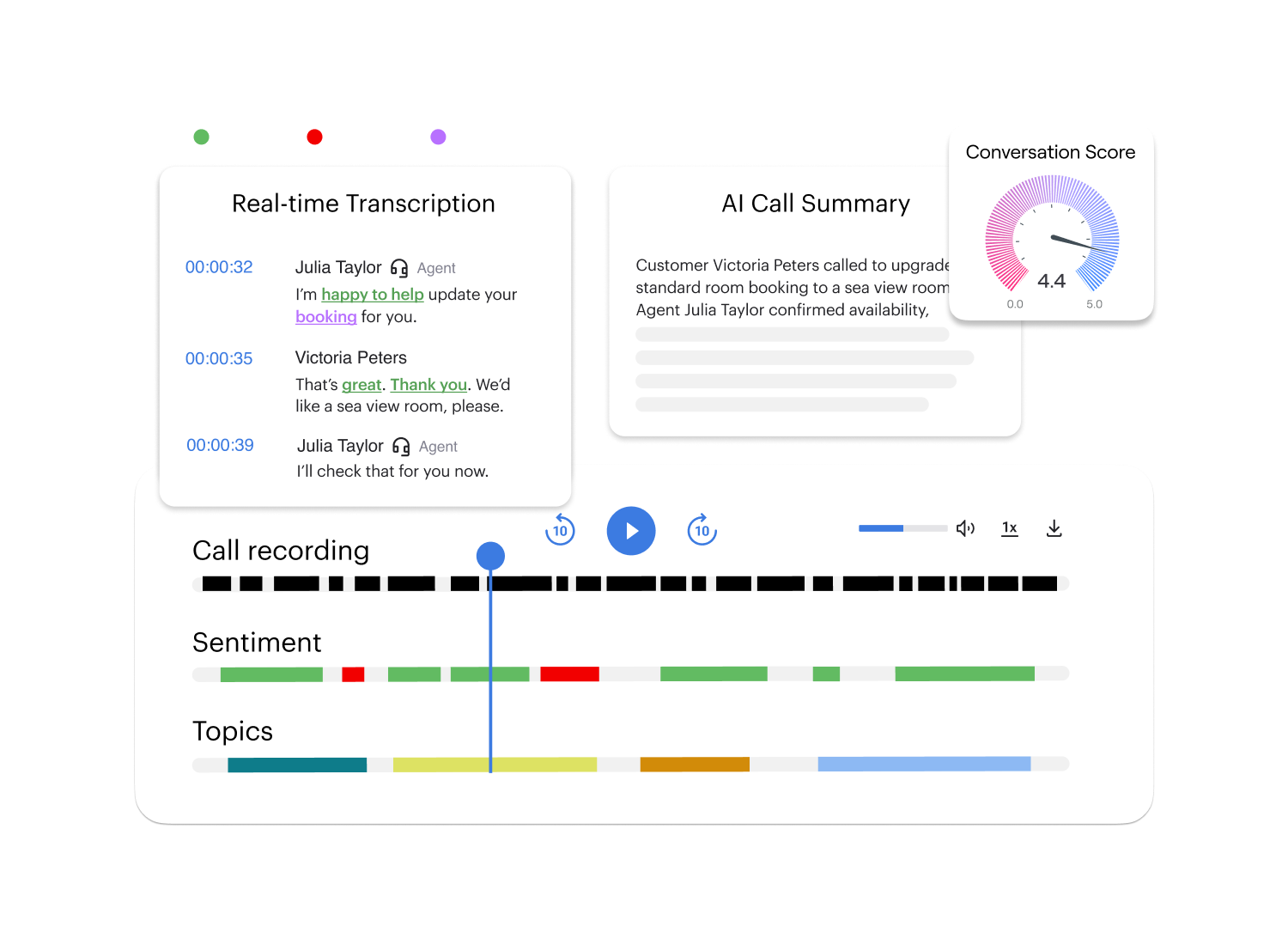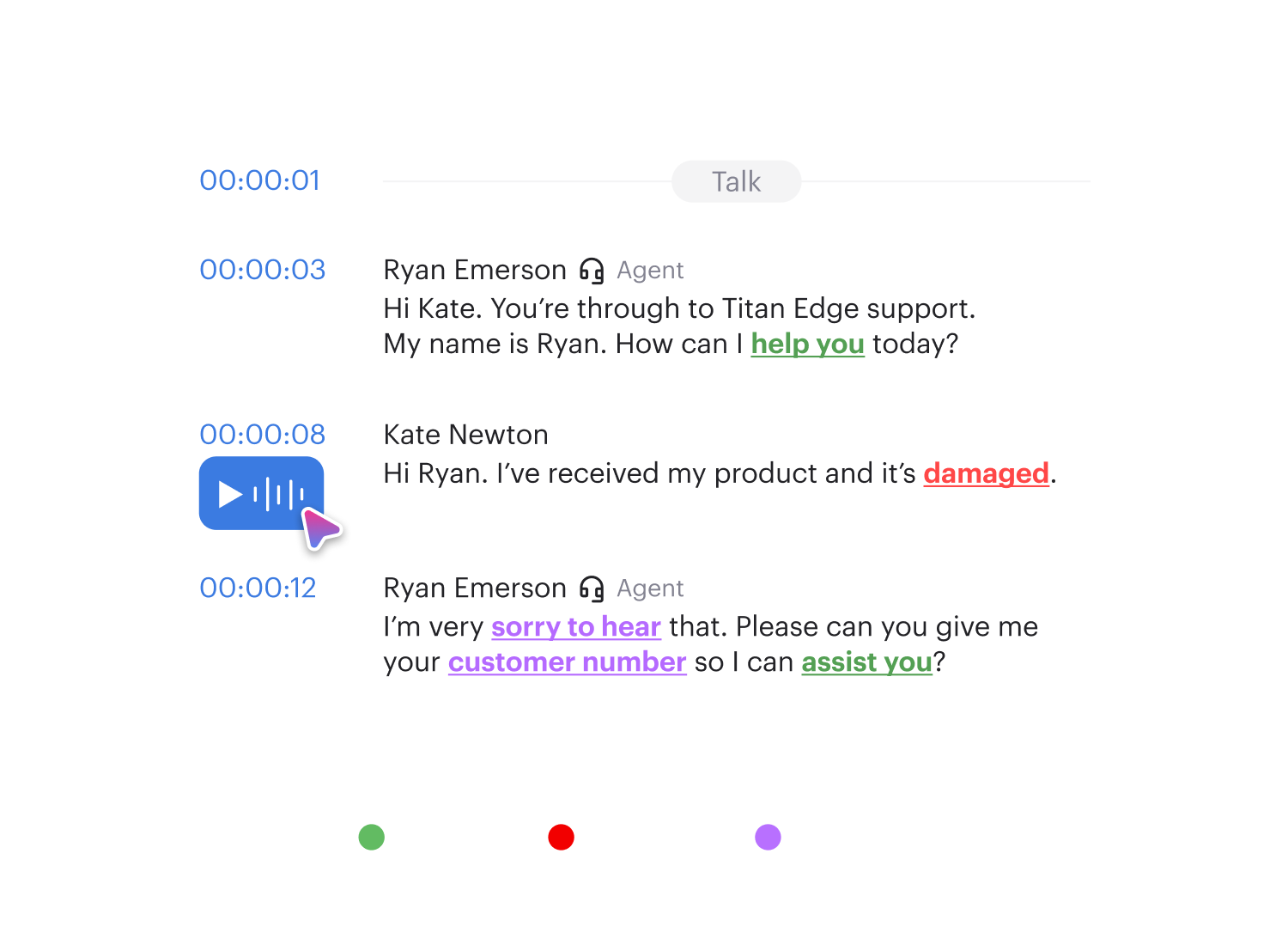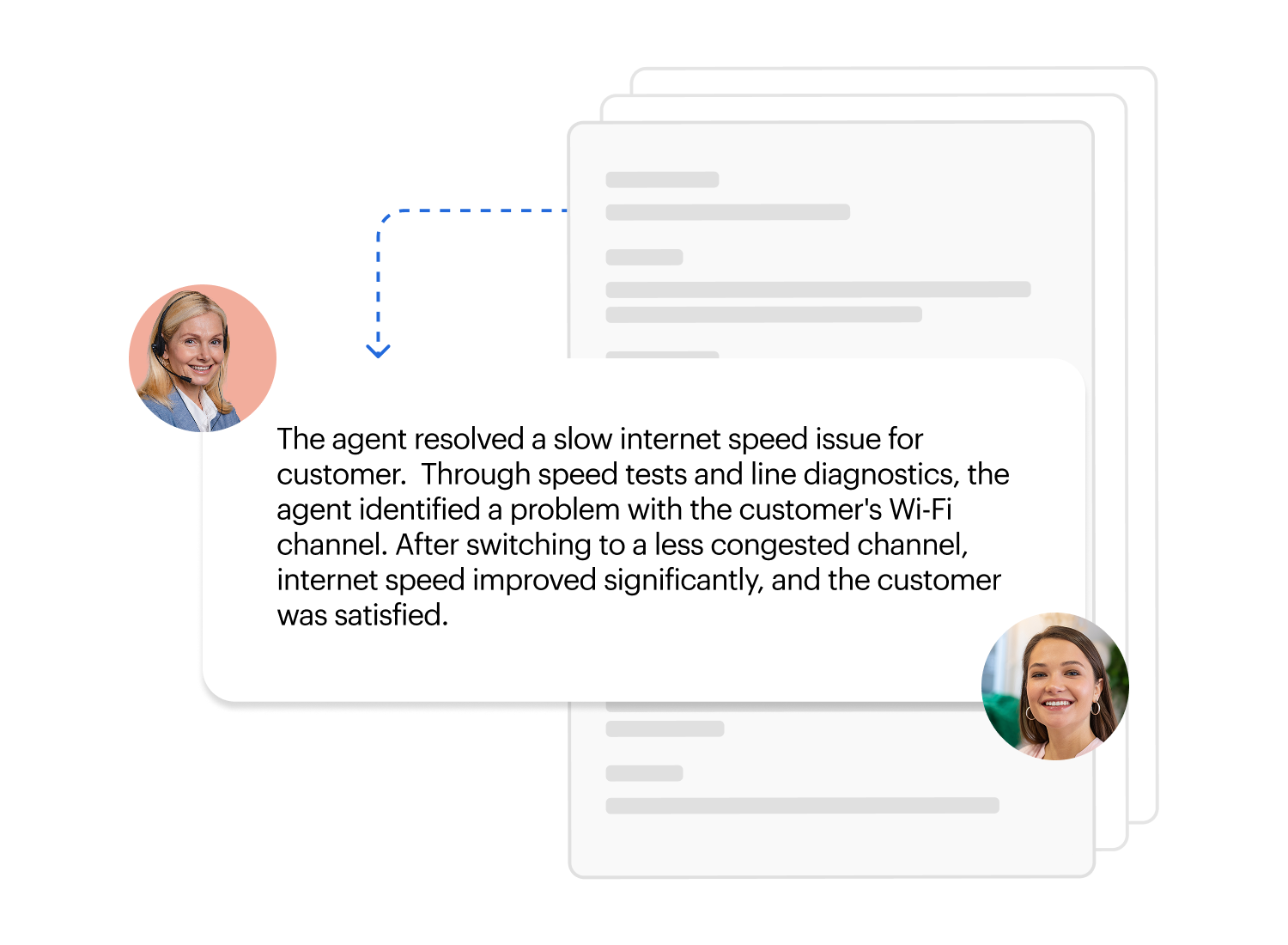Call Scoring Software
Elevate agent performance with AI-driven call scoring
Use AI to score every call, gain valuable insights, and take your agent performance to the next level.

Precision Call Scoring with AI
Every word analyzed
Voiso’s AI Call Scoring analyzes every word to assess agent performance beyond basic sentiment.
It tracks phrase-level sentiment, emotional shifts, and subtle nuances, delivering deeper insights than manual scoring.
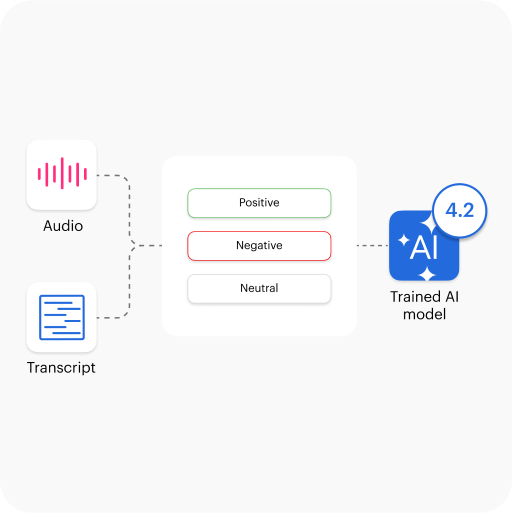
Human-like accuracy
Voiso’s AI, trained on human-scored calls, delivers expert-level accuracy in call evaluations.
Get consistent, unbiased scores that truly reflect interaction quality.
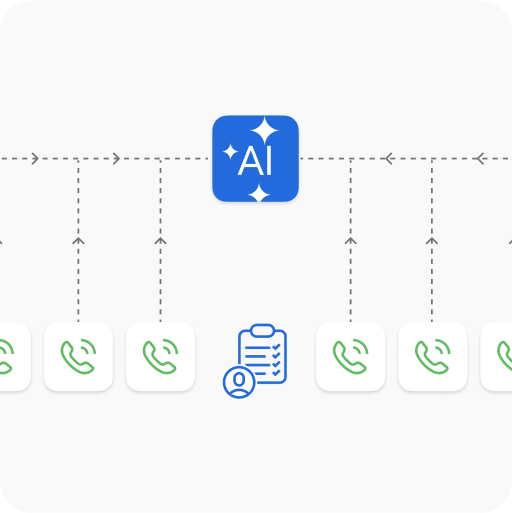
Track all scores
Voiso stores all call scores in the Call Detail Records (CDR) database for a clear view of agent performance.
Filter, track trends, and analyze data to drive improvements and enhance customer satisfaction.
Get started in less than 24 hours
FAQs on Voiso's AI Call Scoring
What is AI Call Scoring?
Call Scoring is a quality assurance tool that uses artificial intelligence to automatically evaluate and grade customer interactions, such as phone calls and chats. It analyzes various aspects of the conversation, including agent performance, script adherence, and customer sentiment, to provide an objective and consistent assessment of the interaction’s quality.
How does AI Call Center Call Scoring work?
Call Scoring leverages advanced AI algorithms to analyze the content and context of conversations. It can be trained on your team’s best calls to align with your specific quality standards. The AI then evaluates each interaction based on predefined criteria, assigning a score that reflects its overall quality.
What are the benefits of AI Call Scoring?
Call Scoring offers numerous benefits, including:
- Objective and consistent evaluations: Eliminates subjectivity and bias from quality assurance processes.
- Improved agent performance: Provides actionable insights to identify training opportunities and track progress.
- Enhanced customer experience: Helps ensure high-quality interactions and identify areas for improvement.
- Increased efficiency: Automates the scoring process, saving time and resources.
- Data-driven decision-making: Enables you to make informed decisions based on comprehensive performance data.
What are the main call center scoring methods?
The main call center scoring methods include:
- :A quality assurance team listens to recorded calls and evaluates them based on criteria like script adherence, tone, and problem resolution. While detailed, this method is time-consuming and prone to bias.
- :AI automatically evaluates conversations by analyzing factors like sentiment, keyword usage, and compliance. This method provides fast, scalable, and consistent results without human bias.
- :AI tools assess the emotional tone of conversations (positive, negative, neutral) to provide insights into customer satisfaction and agent performance.
How to make the best use of Call Scoring?
- : Use call scores to pinpoint areas where agents struggle, such as script adherence or handling difficult conversations. This allows for targeted coaching and skill development.
- : Regularly review call scores to monitor both individual and team progress. This helps ensure continuous improvement and highlights areas where further training or support may be needed.
- : Analyze sentiment and keyword data to understand customer satisfaction levels. Call scoring can reveal patterns in both positive and negative interactions, enabling you to improve customer service quality.
- : Call scoring can automatically flag non-compliance issues by monitoring conversations for required phrases or behavior. This helps mitigate risks and ensures that agents follow regulatory guidelines.
- : Use call scores to make informed decisions, from refining workflows to improving customer engagement strategies. By tracking trends, you can adjust resources and processes based on measurable performance data.
How to score sales calls?
To effectively score sales calls, evaluate both quantitative and qualitative metrics that reflect the agent’s performance and customer engagement. Here are key approaches:
- Conversion Rate: Track the percentage of calls resulting in closed deals or next-step commitments.
- Lead Qualification: Assess how well agents identify high-quality leads during conversations.
- Customer Engagement: Monitor customer sentiment and responsiveness through AI-driven tools.
- Average Handle Time (AHT): Measure the balance between efficiency and thoroughness in calls.
- Script Adherence: Evaluate if agents follow established scripts while maintaining flexibility to address unique customer needs.
- First-Call Resolution: Analyze how often agents close deals or resolve inquiries on the first interaction.
- Call Outcome Tracking: Record and categorize call results (e.g., sales, follow-ups, objections).
- Technology Utilization: Use AI-powered call scoring to identify strengths, areas for improvement, and actionable insights.
How to Evaluate a Call?
Evaluating a call involves assessing both technical and interpersonal aspects of communication. Here are the essential features to include in an effective call evaluation:
- Defined Scoring Criteria: Use a structured scoring system to measure key performance areas such as script adherence, customer engagement, and issue resolution.
- Empathy and Connection: Assess the agent’s ability to build rapport through kindness, empathy, and genuine conversation.
- Active Listening: Ensure agents demonstrate understanding by addressing customer concerns effectively and paraphrasing for clarity.
- Voice and Language: Evaluate the use of a professional, natural tone and clear, jargon-free language.
- Problem-Solving Skills: Measure how well the agent identifies and resolves customer issues or objections.
- Customer Satisfaction Indicators: Incorporate post-call feedback or sentiment analysis to capture the customer’s perspective.
- Coaching Insights: Use the evaluation results to provide actionable feedback and support continuous improvement.
How do I monitor call quality?
Monitoring call quality involves evaluating agent performance and customer interactions to ensure a high standard of service. Here are key steps:
- Define Quality Standards: Establish clear criteria for what constitutes a successful customer interaction, such as problem resolution and professionalism.
- Develop Monitoring Tools: Use call monitoring forms or software to assess key metrics like tone, script adherence, and customer satisfaction.
- Analyze Outliers: Pay attention to exceptional calls, both positive and negative, to identify best practices and areas needing improvement.
- Involve Agents: Encourage agents to participate in reviewing evaluation criteria, fostering accountability and engagement.
- Leverage Recorded Calls: Save exemplary calls for training and problematic calls for constructive feedback.
- Reward Excellence: Recognize agents who consistently demonstrate high-quality service to motivate team performance.

